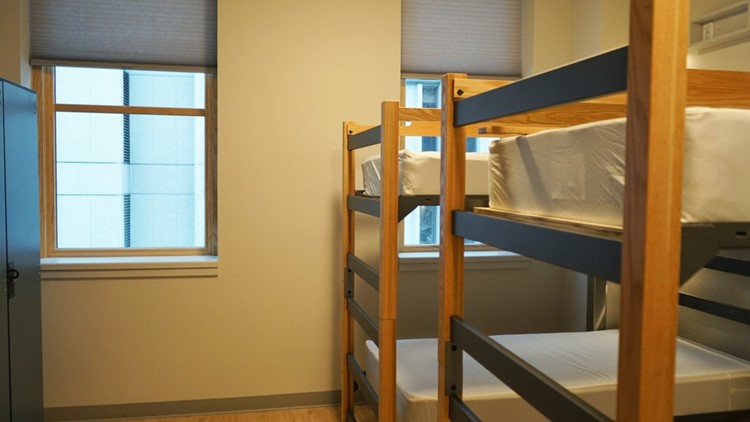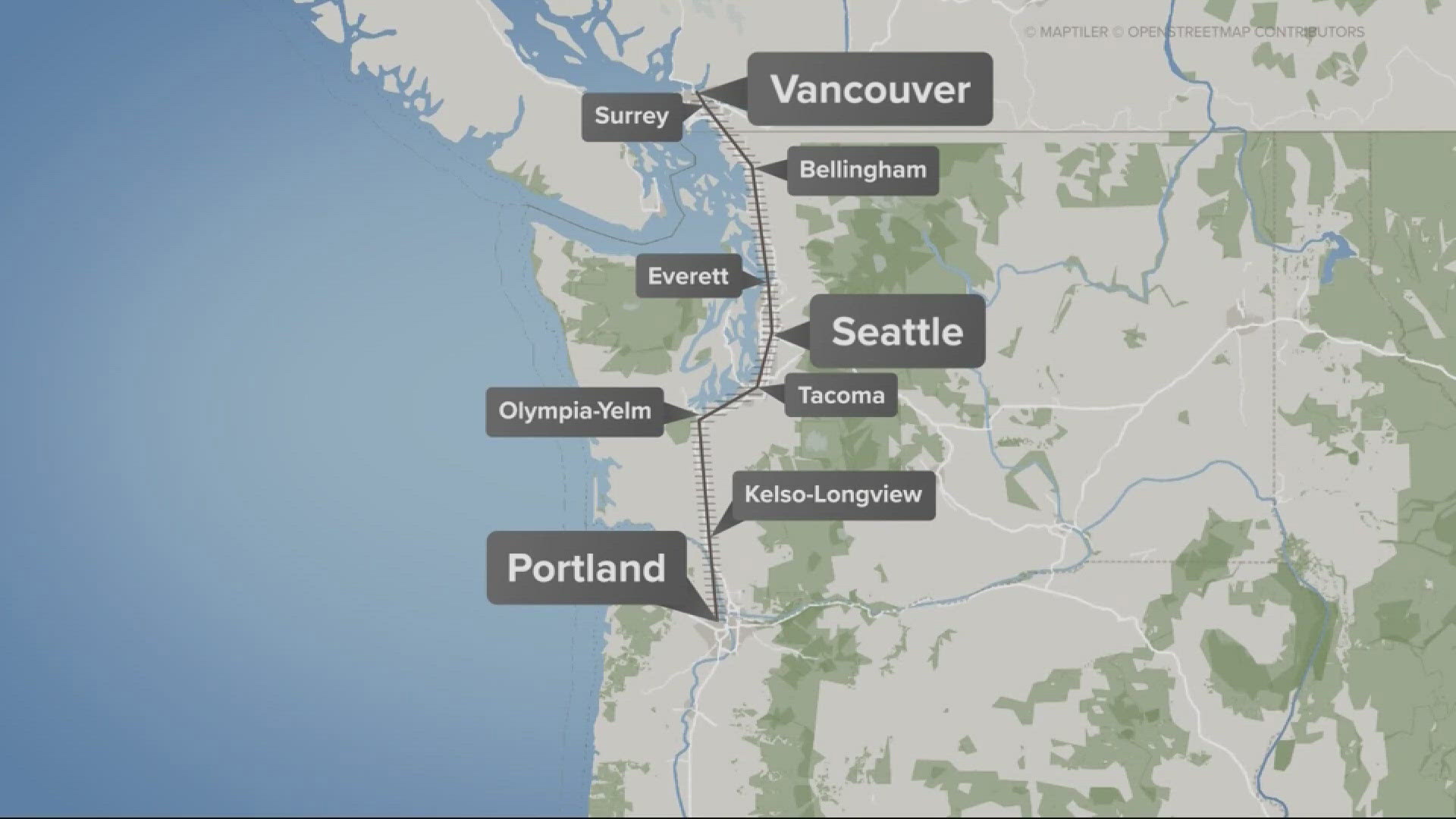PORTLAND, Ore. — Multnomah County on Wednesday announced a step forward in the ongoing response to chronic homelessness, adding 24-hour temporary housing to the Behavioral Health Resource Center in downtown Portland.
The center at 333 Southwest Park Avenue opened late last year, and has thus far offered day services to people experiencing homelessness through housing and employment assistance, as well as access to showers, laundry and lockers.
As of March 8, according to Multnomah County, the day center reported more than 12,000 visits, referred more than 720 people to overnight shelters and connected more than 200 people to mental health or substance use programs.
The county's Wednesday announcement concerned a new partnership with Do Good Multnomah to operate a total of 52 beds at the resource center for temporary shelter and transitional housing — a major goal for the center from the outset.
The largest part of the program, operating on the building's third floor, will provide 33 beds for round-the-clock shelter, paired with individual behavioral health support for people who need ongoing services. The goal will be to connect people with transitional or permanent housing within 30 days, Multnomah County said.
On the building's fourth floor will be a smaller, 19-bed bridge housing program. This part will be tailored toward people actively working on a plan to get and maintain permanent housing within 90 days. Those individuals will get life skills training and assistance, peer and recovery support and connection to treatment and other services.
Both offerings are expected to open sometime this spring. Unlike the drop-in services at the current day center, the shelter programs will be accessible through referrals and reservations only.
“This is an important step forward in our overall response to serve those most in need in ways that can and will benefit them for both the short and longer-term,” said Multnomah County Chair Jessica Vega Pederson. “When we created the vision for the BHRC, we hoped to be able to provide exactly these kinds of longer term solutions with the additional benefit of participants becoming better stabilized to move into permanent, supportive housing.”
According to the county, Do Good Multnomah started in 2015 as a low-barrier shelter for homeless veterans. Since then, the organization has expanded to offer shelter and other forms of housing support to all populations.
“Housing is a human right,” said Daniel Hovanas, chief operations officer at Do Good Multnomah. “We’re thrilled to partner with Multnomah County to expand shelter capacity in our community and help people overcome barriers to long-term housing.”



